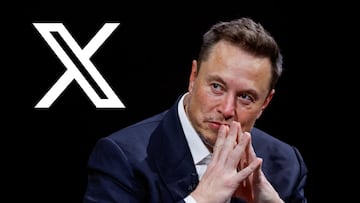What did Elon Musk say about the possibility of World War III?
Billionaire Elon Musk argues that the status quo has world leaders “sleepwalking into World War III.”


“We may be sleepwalking our way into World War III,” said X, owner Elon Musk, in a ‘space’ held on the platform earlier this week. The event also featured entrepreneur David Sachs and Republican presidential candidate Vivek Ramaswamy.
Elon Musk:
— Clash Report (@clashreport) October 23, 2023
I think we are sleepwalking our way into World War III. pic.twitter.com/Z38zPzYuHb
While the conversation was focused on the ‘Israel-Hamas war,’ Musk and the other commentators focused their attention on the emerging alliances on the global stage.
These comments come as the White House has requested Congress to pass a bill containing $50 billion in military support for Ukraine and Israel. The commentators present at the event raised questions about the consensus held by most politicians in Washington that this funding is necessary to increase US national security.
Musk pushes US talks with Russia
The beginning of the conversation was focused on the risk of what an Israeli invasion of Gaza would have for the region, considering Iran’s alliance with Russia. Ramaswamy argued that the US should begin to reopen diplomatic channels with Russia, with the primary objective of further isolating China.
Later in the conversation, Musk pivoted to the question of how a global war can avoided and challenged the theoretical framework through which many leaders view the world, adding that “one foolish decision after another” has only brought the possibility of a third world war closer. In his typical fashion, Musk began to talk about World War III as a “civilization risk,” downplaying the importance of each individual conflict and instead focusing on the threat they create when layered on top of each other. Musk believes that a third world war could lead to “devastation that far exceeds World War I and World War II.”
Related stories
“Nobody wants, nobody expects [...] to have World War III,” said Musk, but raised the possibility that such a future is possible if events are allowed to “cascade out of control.” Later, Musk added that he is “not afraid of war” but believes that US military power is being ‘overestimated’ and that a possible “axis” between Russia, China, and Iran “should be viewed as [...] very strong relative to the West.”
The view that Musk puts forward is one of political realism that views economic strength as the primary factor that matters in the global arena. “The foundation of war is economic power,” and to avoid a counterweight alliance that is able to challenge the West, Musk argued that the US has to stop pushing Russia and Iran towards China. Musk’s view on the importance of economic relationships in global governance may not face many objections, but his unique position and interests lead him to conclusions that many take issue with. A diversity of opinion is emerging, and public opinion is shifting. It may be time for leaders in both the economic and political spheres to listen.

